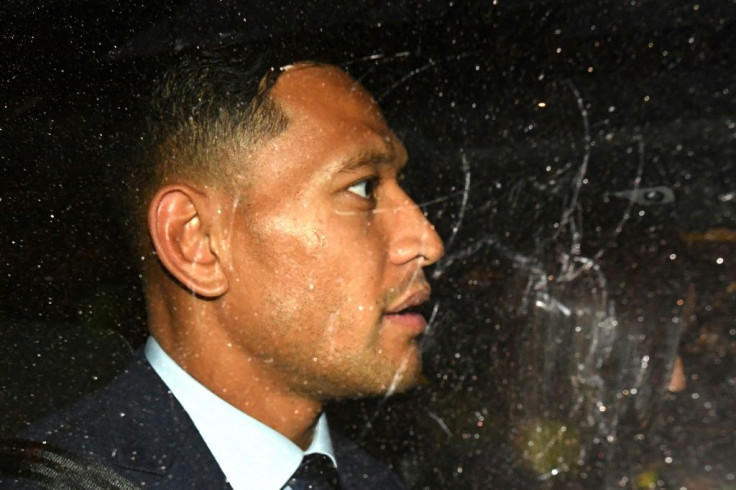Folau 'Conceded' Homophobic Post Breached Rules: Rugby Australia

Sacked former Wallaby star Israel Folau conceded his anti-gay social media posts breached Rugby Australia's code of conduct and offered to apologise, the governing body claimed in a court filing made public Wednesday.
Super Rugby's record try-scorer, who was on a Aus$1 million-a-year (US$690,000), four-year deal, was fired in May for posting on Instagram that "hell awaits" gay people and others he considers sinners.
The devoutly Christian fullback is pursuing legal action against Rugby Australia and NSW Rugby, claiming he was unlawfully dismissed under legislation that disallows sackings because of a person's religion.
Rugby Australia also claims the 30-year-old conceded in his evidence "people who are homosexual, or who had a homosexual friend or a child struggling with homosexuality" and transgender people may have been offended by the posts and "he understood that at the time".
In addition, the defence further states that Folau conceded sponsors were likely to feel "very uneasy" associating their brands with Rugby Australia while the posts remained online, and he offered to make a public apology -- but remained steadfast in his refusal to pull the divisive posts.
Rugby Australia further claims Folau told the tribunal it was his "right" to make such posts and would again if he felt the need to do so in the future.
The high-profile rugby player argued in his statement of claim that his dismissal over anti-gay comments was "an unreasonable restraint of trade" because it stopped him playing the sport.
He also argued it was against the public interest for a contract "to prohibit an employee... from having or adopting any religion or belief".
Folau is reportedly seeking Aus$10 million, including for lost sponsorship and marketing opportunities.
He announced Monday he would revive his sporting career by playing rugby league for Tonga in upcoming Tests against Australia and Britain, saying he had been given the green light to rejoin the 13-man code he left in 2010.
That plan has been thrown into doubt by the Rugby League International Federation, which said in a terse statement Tuesday it had not been formally asked to consider the matter.
© Copyright AFP 2024. All rights reserved.




















